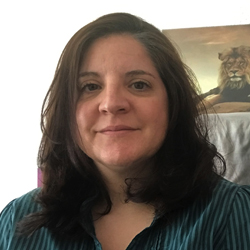It is almost 8:00 in the morning when a convoy of three pickup trucks bearing the logo of Benin’s Department of Forests and Natural Resources and a grey off-road vehicle depart the metropolis of Cotonou for the 400 mile trek to the city of Kandi, located near Park W.
Aboard the vehicles are, in addition to the four drivers, one representative of the Niger authorities, one representative of the Burkina Faso authorities, three representatives of the Benin authorities, two members of USAID’s West Africa Biodiversity and Climate Change (WA BiCC) program, two trainers from the Freeland Foundation, and myself.
The day prior, the team members had presented their program and expectations in relation to the purpose of their presence in Benin: a one-week preparatory meeting to coordinate a specialized PROTECT-DETECT (Protected-Area Operational and Tactical Enforcement Conservation Training – Detection of Environmental Crime Training) train-the-trainer pilot counter-poaching training course. This cross-border course, bringing together participants from three countries, will be a first in itself. Through this initiative, teams from Benin, Burkina Faso, and Niger will acquire advanced law enforcement skills that will allow them to improve their efficiency in the fight against wildlife poaching and trafficking. Moreover, the train-the-trainer approach will allow governments to take ownership of the training, to adapt it to their own context, and to replicate it autonomously, with the support of the trainers. The course is intended to build capacities of rangers from Benin, Burkina Faso, and Niger, the three countries over which the transboundary Park W extends.
Following this one-day validation meeting, the aim of our journey through Benin from South to North is to visit two sites in Park W – Koudou Falls and Alfakoara – so that the Freeland Foundation trainers can decide whether these sites would be suitable for the PROTECT-DETECT training.
All day long during the cross-country drive, scenes of transport trucks and overloaded cars, along with diverse landscapes that alternate between wooded areas of green foliage and brown arid plains dotted with trees, scroll before our eyes. We arrive in Kandi at around 6:30 pm in a stifling heat. There, we learn that, for security reasons, USAID will not allow us to visit the Koudou Falls site, which is located two hours from Kandi, inside Park W, near the border with Burkina Faso.
The next day, instead of visiting the Koudou site, our team attends a meeting at the CENAGREF (National Center for Management of Fauna Reserves) liaison office in Kandi. There, the two Freeland Foundation trainers have the opportunity to interact with ecoguards and forest officers working in Park W. The Director of Park W Beninand the Director of Conservation of Park W Niger, as well as CENAGREF employees, are also present. The group discusses equipment, training, salary, knowledge, skills, relations with local communities, and the dangers they face. Everyone is very willing to openly share information, and no questions are left unanswered. Participants are also highly motivated to increase collaboration between the three countries to fight against poaching and wildlife trafficking. In particular, this interview allows Freeland trainers to identify gaps in the theoretical and practical knowledge of the participants. They realize it will be necessary to adapt the content and the duration of their training and to separate it into several stages.
On Wednesday afternoon, the team heads to the Alfakoara site, which is about 30 minutes by car north of Kandi. The site, located at the southeast entry to Park W, is known to host a population of elephants that regularly bathe in the pond. Watchtowers have been built to enjoy a better view of the elephants and the surrounding landscape. Unfortunately, only the drivers are lucky enough in their timing to see the elephants while the rest of our team is still discussing the logistical aspects to be set up for the training in what should become the future training room. When we finally join the drivers at the observation area, the elephants are hidden behind the trees.
The trainers conclude that the Alfakoara site would be suitable for training, subject to some development and renovation of the existing buildings. As the training includes many practical modules, the trainers are reassured us that the external environment will be perfectly suited for real-life training conditions and that they would set up mock crime scenes and poachers’ camps. Moreover, as this location is near a major highway, the training participants will be able to sleep on-site, and security can be ensured in an appropriate manner.
On Thursday morning, immediately following breakfast, the team holds a debriefing session during which all participants are able to express their impressions and conclusions of this week’s preparatory meeting. The next steps are identified and it is decided to postpone the pilot training until later in the year. In addition to reviewing budgetary issues, the three countries will work together to develop a list of criteria for the selection of the 10 participants per country that will take part in the training.
Now that each of us has returned to our respective home countries, it is time to draw conclusions from the preparatory week and start implementing the next steps. Click here to view more photos from this visit to Benin and stay tuned for more of our efforts on this important training program!
Keep Wildlife in the Wild,
Aurora
